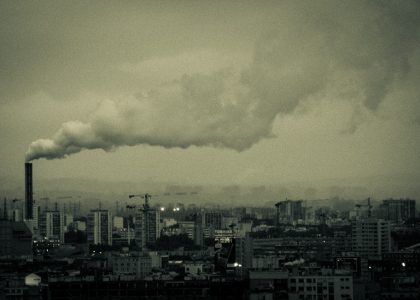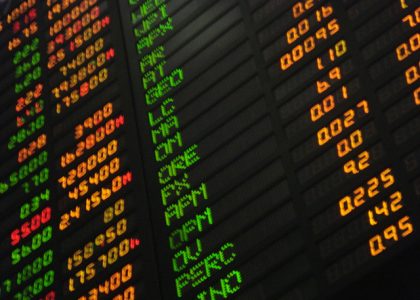Rupert Read is Reader in Philosophy at the University of East Anglia. He very kindly found some time in his diary to talk to us about his new book – A Film Philosophy of Ecology and Enlightenment – that has just been published by Routledge.
Q Rupert Read, many congratulations on the publication of your new book! Could we begin by asking you to say a few words about your motivation for writing this book – and for writing it now – and perhaps reflecting on how A Film Philosophy of Ecology and Enlightenment builds on some of your earlier work such as Film as Philosophy: Essays in Cinema after Wittgenstein and Cavell.
Thanks!
Yes; in 2005, my book (co-edited with UEA Philosophy colleague Jerry Goodenough) entitled Film as Philosophy: Essays on Cinema after Wittgenstein and Cavell was published. This was the first book to bring together the main voices advocating that films can genuinely function as philosophical texts, and exemplifying that claim across a series of impressive cases of philosophical films.
Especially since then, there has been a great deal of interest in the question of whether films can function as philosophical works.
My view, exemplified in detail in this new book, is that philosophical work at its best is “therapeutic,” in very roughly the psychoanalytic sense of that word. Or better still, that philosophical work is “liberatory”: essentially freeing us from unaware constraint by theories.
Philosophy need not—and in fact, if one is at all taken by Wittgenstein’s quiet philosophical revolution, should not—issue in any controversial theses or opinions, any theories, at all. Rather, it should work with the “patient’s”— the interlocutor’s, and indeed one’s own—presumptions, exposing them to awareness, and thus empowering her/him to autonomously acknowledge, justify, or overcome or transform them, where necessary.
The films I look at in this new book enable one, I believe, to do just this.
Q Your new book develops a particular approach to philosophy encouraging us to re-think that which already exists. Could you say a little more about what this involves, how it might differ from alternative conceptions of philosophy, and why this might be important?
Well, inspired by the philosophy of Wittgenstein and his idea that what real philosophical thinking does is not to discover something new, but to show in a strikingly different light
what is already there, I aim to do just that. To show what is in these films, and thus in our world. As it is. And as it might be. For ill—or for good.
The goal is liberation from attachment to (compulsion by) false, arbitrary or misleading pictures and a newly acquired ability to think and perceive more clearly and honestly, less denialistically, and thus (ultimately) more ecologically.
The method of the book, as a consequence, differs from that of most philosophical or theoretical work on film. Rather than using theory as a pre-formed tool with which to understand the films, I allow philosophical, political and ecological ideas to stand alongside the films and to emerge from the films themselves. Nor does this book “find” Wittgenstein’s philosophy allegedly hidden in the films; rather, as I like to put it, it finds the films. In other words, Wittgenstein helps orient one towards the films so that one can (as Wittgenstein himself famously put it) “find one’s way about” both in them and in relation to them.
Q How important is film today? Does this importance change over time – for instance, with technological and social transformations that might encourage us to leisure in different ways, in different places, and through different media?
Film is the great popular artform of our time. It may not always be – perhaps it might be displaced by interactive games of some sort – but right now, it is.
Artistic representations, if they are good enough and powerful enough, can catalyse. They can impact our worldview, by changing how something is conceptualized and presenting it in the context of an actual life, which abstract thinking on its own cannot do. The very future of our living planet is linked to the possibility of evolving attitudes towards our place in it. Film, as the great mass medium of our time, may turn out to have a vital part to play, if there is to be a future for us. This book seeks to indicate some of the dimensions of that part, that task.
And to begin to pursue it.
Q The films you explore in your book are obviously very diverse: how did you go about selecting these? Did any other films nearly make the cut?
One criterion is that the films I chose had to be understandable as philosophically relevant and impressive. Another, to be honest, is that I had to like them and had to have something original to say about them. Otherwise, I couldn’t have devoted the deep time and energy to working on them, and in any case doing so wouldn’t have been worthwhile. I believe that each one of the 12 films I discuss has something unique to offer, and that I have something unique to say about that offering.
The films I’ve looked at in the book are, we might venture to say, designed or destined to midwife a personal or inter-personal, philosophical and even political aware-ing, by means
of which we no longer take ourselves to be superior to or alienated from the rest of life. This process of becoming aware, conscious, is a true freedom (from dogmas in which we are drowning, from the ‘heteronomy’ that rules us), including a freedom from the hegemonic fantasies of freedom itself, fantasies that are killing us: consumeristic, individualistic, “progressive” fantasies, that rule our world.
The films which I chose to discuss focally address, as I see them, important features of our time in its heart of darkness, in a manner that essentially includes the viewer. They do not (in the main) lecture or didacticize; they facilitate an open-ended experience of growing wisdom, and of ethical and indeed political engagement.
Every one of the 12 films I explore in the book makes its most important contribution of all by enabling a possible liberation through an experience: such as the kinds of consciousness-shift that come, to an open mind, at the end of Waltz, Apocalypto, Hiroshima, Melancholia, 2001, Gravity and Avatar; or the kinds of perspective by way of “impossible” nightmare that are afforded variously by Never Let Me Go, The Road, Marienbad, Solaris and Lord of the Rings. If we experience those experiences together (especially, in a cinema), so very much the better; and yet they must be our ownmost. You cannot outsource philosophical work to another person.
Other films I’d love to have discussed include Son of Saul, Persona, and The hunger games ‘trilogy’. I also talk briefly in the book about one or two films that I think are dangerous and highly-problematic, films that oppose the spirit of the films I have focussed on. My leading example here is Interstellar, Nolan’s sci-fi film. My reading of this film is that it is (besides being philosophically incoherent, in terms of its ludicrous time-travel narrative) anti-ecological, and thought-narrowing. If I’d have had more space, I’d have loved to have gone into that in more detail.
Finally, I’d add that what connects all the 12 fine films I have in fact focused upon most obviously is their common interest in trauma. This interest is present even in the one film of the 12 focal to this book where it is perhaps not obvious: in 2001: A space odyssey, where I argued for its presence in HAL’s experience. In nine of the films, there is also a strong interest in recovery, figured as re-emergence, as an awakening to and as real freedom. (In Last year in Marienbad, Never let me go and (I argue) Solaris, that interest is absent . . . but profoundly absent; present, we might say, by way of its absence…)
Q Is it possible to evaluate or measure the impact of films upon viewers? How would we know that their ‘wake up call’ had been heeded?
I think we would know that by people changing their lives.
This is what I observed happening a bit when Avatar (the last of my 12 films) came out in 2009. Following the Avatar hashtag twitterfeed, one could see people saying things like: that they were going to give up their 4 x 4, for instance. I gave a talk on Avatar, and someone in the audience said that as a result they were no longer going to seek work in the army. That was a powerful moment!
My book suggests that we, human beings, are or should be nature coming to consciousness of itself. Ready to defend itself against the worst instincts of humanity, and against our failing institutions.
We’ll see in the next few years whether that happens more. If it doesn’t, then this civilisation will fold. It will ecologically undermine itself, as it is currently doing.
Q Now that A Film Philosophy of Ecology and Environment has been published, what are your hopes for the book? What would you like readers to take away from it, and what impact would you like it to have on the world?
My book, I hope, manifests a broadly Wittgensteinian sensibility: by refraining from “theory,” I manifested primarily a set of “examples” designed to challenge and overcome certain specific and problematic intellectual prejudices. (To as to free one’s mind from the shackles of the culturally hegemonic ideologies of ‘progress’, ‘growth’, separation, and so forth.)
And, as I’ve just suggested, those prejudices – such as of our separation from each other and from nature more broadly — are by no means of narrowly academic interest.
I hope that readers will take from the book an enhanced sense of the beauty and import of these films and of films like them. And that means: an enhanced sense of the beauty and import not just of films, but of animals, of each other, of the future, of this half-wrecked but still exquisite planet.
Rupert Read, thank you very much indeed for your time. A Film Philosophy of Ecology and Environment has been published by Routledge, and is now available for purchase via their website and in all good bookshops! (But, until the paperback comes out, it isn’t cheap – you may wish to order it through your library!]





